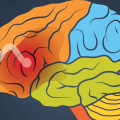The term “addiction” is derived from a Latin word meaning “enslaved by” or “forced to”, and anyone who has ever tried to overcome an addiction or help someone else do so can understand why. The National Institutes of Health (NIH) has funded scientists to learn more about the biology of addiction, and they have found that it is a complex and long-lasting brain disease. Current treatments can help people manage their addictions, but there is always a risk of relapse. Brain imaging studies of people with substance use disorders have revealed changes in areas of the brain that are critical for judgment, decision-making, learning and memory, and behavior control.
These changes can alter brain function and explain the compulsive and destructive behaviors associated with addiction. The type of substance a person takes can also contribute to addiction. Opioids, for example, are highly addictive because they directly target receptors in the brain. It may seem strange to group gambling problems in the same category as drug or alcohol addiction, but addiction experts are now moving away from the idea that there are multiple addictions, each linked to a specific substance or activity. Instead, the Addiction Syndrome Model suggests that there is an addiction that is associated with multiple expressions. An object of addiction can be almost anything - a drug or a drug-free activity.
For addiction to develop, the drug or activity must change a person's subjective experience in a desirable direction - it must make them feel good or better. Many people don't understand why or how other people become addicted to drugs; they may mistakenly think that drug users lack moral principles or willpower and could stop using drugs if they chose to. In reality, drug addiction is a complex disease and quitting smoking usually requires more than good intentions or strong will. Drugs change the brain in ways that make it difficult to quit, even for those who want to. Fortunately, researchers know more than ever about how drugs affect the brain and have found treatments that can help people recover from drug addiction and lead productive lives. It is important to remember that while it may be tempting to try a drug or an addictive activity for the first time, it is very easy for things to go wrong - especially when it comes to drug and alcohol abuse.
People develop tolerances when they repeatedly abuse substances over time; this means that greater amounts of drugs or alcohol are required to achieve the desired effects, aggravating the nature of the addiction. This holistic approach identifies the need to address not only the brain disease of addiction but also internal factors (such as genetics) and external risk factors that lead to and enable addiction. Researchers have succeeded in isolating a number of genes, hormones and chemicals in the brain that are directly related to certain types of addictions. So why do some people become addicted when others don't? Ultimately, the answer lies in a person's unique brain chemistry and lived experiences. Addiction tends to run in families, and certain types of genes - stretches of DNA inherited from parents - define characteristics such as the risk of certain disorders such as addiction. Genome-wide association studies (GWAS) are used to examine genetic associations with dependence, addiction, and drug use; however, these studies rarely identify previously described protein genes using animal inactivation models and candidate gene analysis. Addiction can occur in the absence of dependence, and dependence can occur in the absence of addiction - although the two often occur together.
The good news is that there are a number of effective treatments for addiction, including self-help strategies, psychotherapy, medications, and rehabilitation programs.Addiction is a biopsychosocial disorder characterized by compulsive participation in rewarding stimuli despite adverse consequences. This part of the brain should alert a person to the harmful consequences of such behavior but addiction affects its ability to perform this function. Genetic research has revealed that some people are predisposed to addiction but not necessarily to any specific type of addiction. Addiction is a chronic recurrent brain disease defined by physical and psychological dependence on drugs, alcohol or behavior. Addiction develops when the urge to take a substance takes over parts of the brain that reward behavior and provide benefits to the body.
Based on this research, scientists have determined that addicted people may experience relapses and that addiction rehabilitation programs should include reinforcement sessions. Because of this, treatment for alcohol addiction usually involves a combined approach that treats dependence and addiction simultaneously. Research has shed light on the changes that occur in the brain after this transition, developing the model of addiction as a brain disease. Ultimately, understanding why some people become addicted while others don't requires looking at each person's unique brain chemistry and lived experiences. Addiction is complex but there are treatments available that can help people recover from it and lead productive lives.


